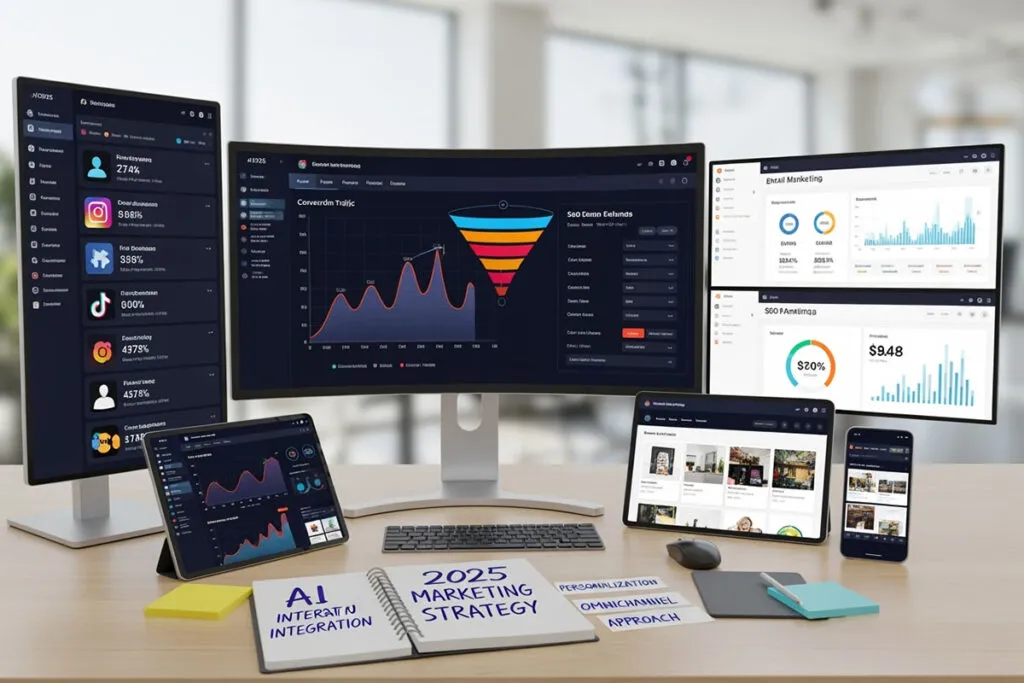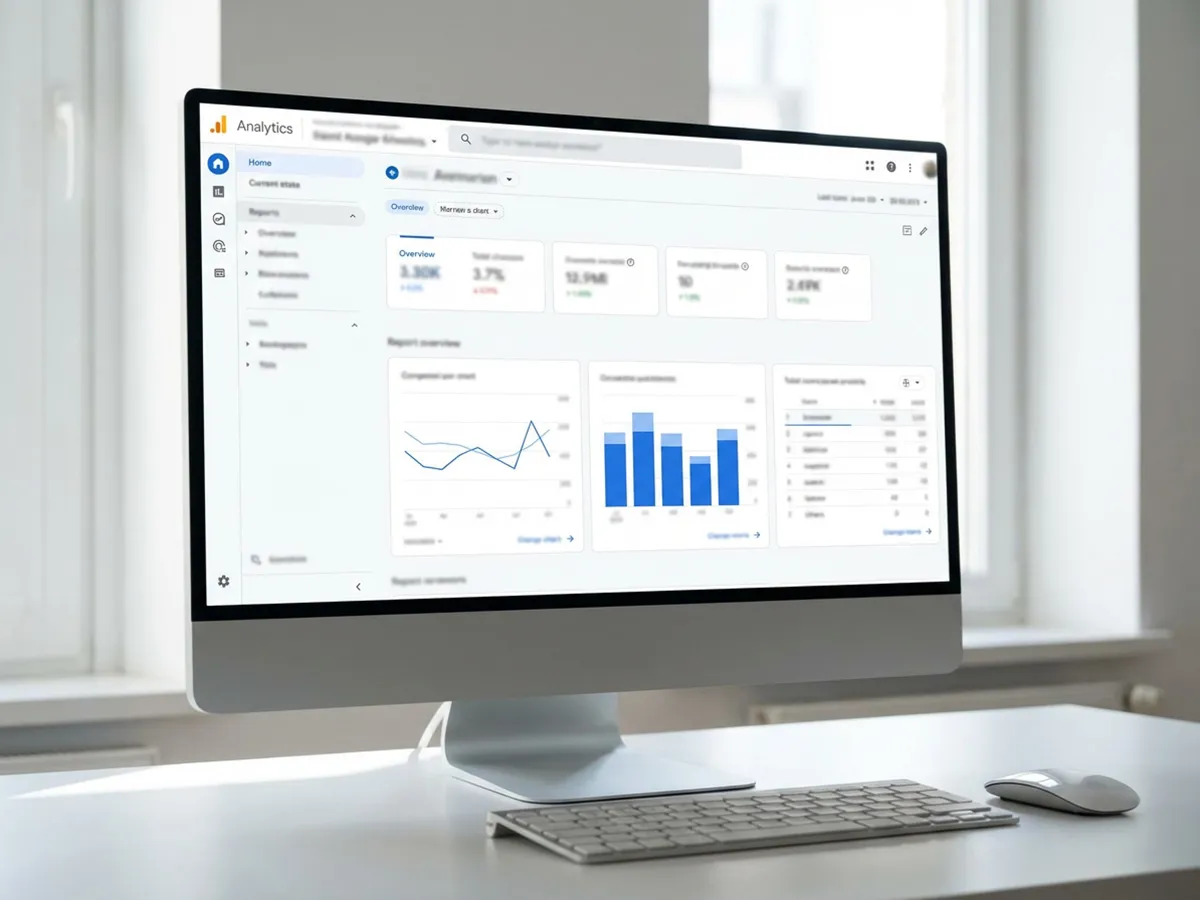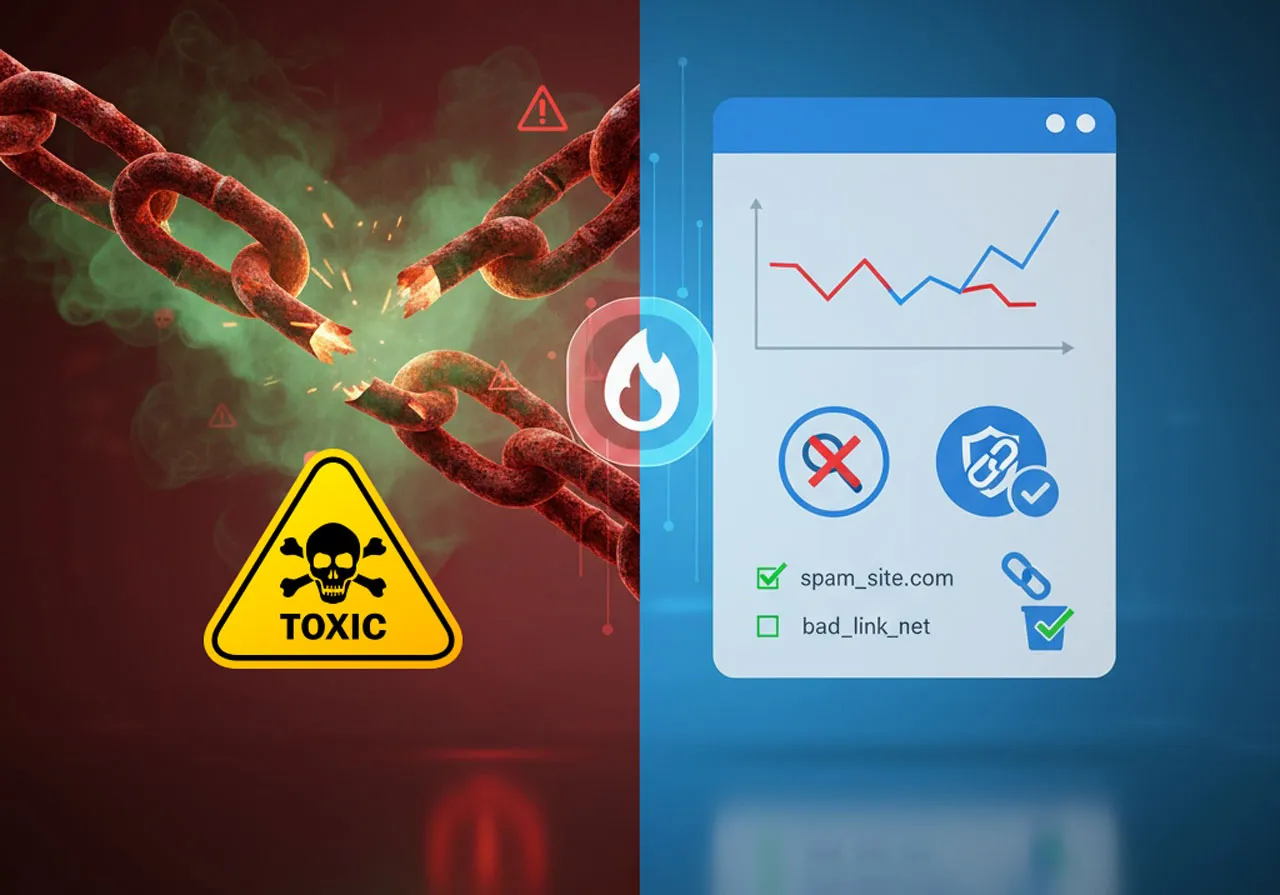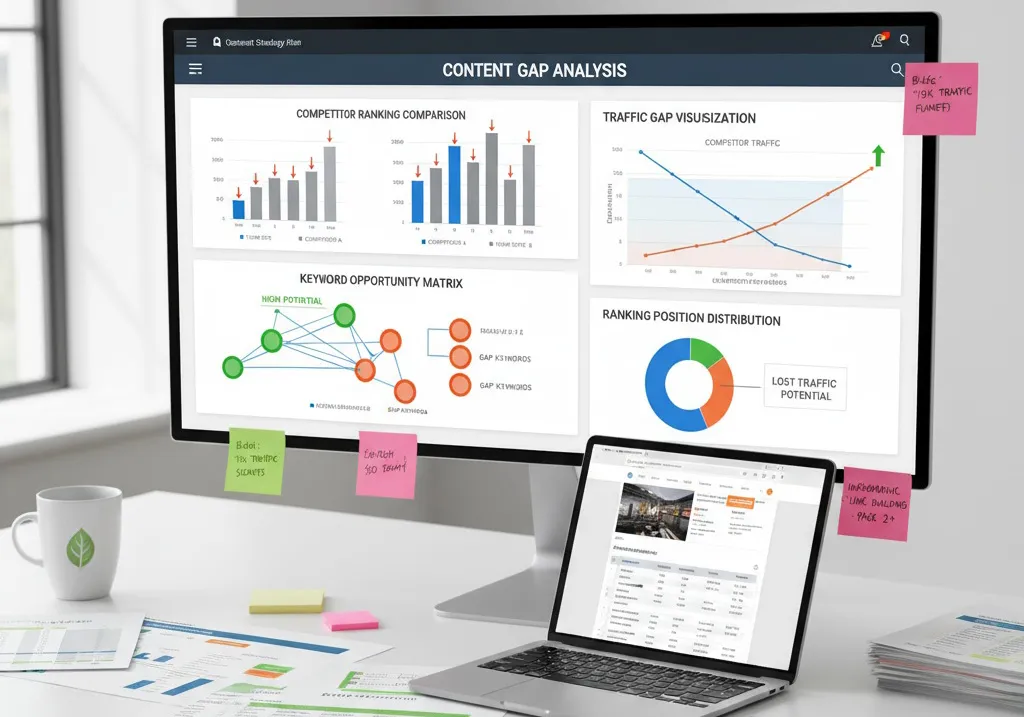Website marketing is the strategic process of promoting your business online to attract qualified visitors, generate leads, and increase revenue. In today’s competitive digital landscape, effective website promotion combines multiple channels to maximise visibility and drive sustainable growth.
What Is Website Marketing and Why It Matters for Business Growth
Website marketing encompasses all promotional activities designed to increase your site’s visibility, attract target audiences, and convert visitors into customers. Unlike traditional advertising, digital marketing for websites allows precise targeting and measurable results.
Modern website marketing strategies deliver measurable benefits:
- Increased organic traffic through search engine visibility
- Higher conversion rates from qualified leads
- Enhanced brand awareness across multiple digital channels
- Improved customer acquisition costs compared to traditional marketing
- Better customer retention through targeted messaging
Without strategic website promotion, even exceptional products and services remain invisible to potential customers who are actively searching for solutions online.
Search Engine Optimization: The Foundation of Website Marketing Success
SEO for websites remains the most cost-effective long-term strategy for sustainable traffic growth. Organic search traffic converts at higher rates than paid advertising because users actively seek information or solutions.
Search engine marketing success requires a comprehensive approach:
- Keyword research to identify high-value search terms
- On-page SEO optimization including title tags, meta descriptions, and content structure
- Technical SEO improvements for site speed and mobile responsiveness
- Local SEO strategies for location-based businesses
- Link building campaigns to establish domain authority
Recent studies show that the first Google result receives approximately 22% of all clicks, while position 10 garners only 2%. This dramatic difference highlights why SEO ranking factors directly impact business revenue.
For keyword research, focus on terms with commercial intent that align with your products or services. Tools like Google Keyword Planner help identify opportunities where search volume meets manageable keyword difficulty.
Learn more about comprehensive SEO strategies at Moz’s Beginner’s Guide to SEO.
Paid Search Advertising: Immediate Visibility and Traffic
Pay-per-click advertising delivers instant visibility in search results, making it ideal for new websites or competitive markets. Google Ads and Bing Ads allow precise targeting based on search intent, location, and demographics.
PPC campaign optimisation requires continuous testing and refinement:
- A/B testing different ad copy variations
- Quality Score improvements to reduce costs
- Conversion tracking to measure ROI
- Negative keyword lists to prevent irrelevant clicks
Search engine advertising works best when combined with landing page optimization. Ensure your destination pages align with ad messaging and include clear call-to-action buttons.
Budget allocation should balance immediate needs with long-term growth. While paid search marketing stops generating traffic when campaigns pause, it provides valuable data for SEO keyword targeting.
Explore advanced PPC strategies through Google Ads Help Center.
Social Media Marketing: Building Community and Driving Engagement
Organic social media marketing builds brand awareness and drives website traffic through authentic engagement. Social media strategy requires consistent content creation and community management across platforms where your audience is most active.
Social media for business delivers multiple benefits:
- Brand awareness through regular content sharing
- Customer relationship building via direct interaction
- Website traffic generation through strategic link placement
- User-generated content that builds social proof
Social media content marketing performs best when focused on providing value rather than constant promotion. Share industry insights, behind-the-scenes content, and customer success stories to build authentic connections.
Platform selection depends on your target audience demographics. LinkedIn marketing works well for B2B companies, while Instagram marketing and TikTok marketing reach younger consumers effectively.
Paid Social Media Advertising: Targeted Reach and Precise Targeting
Social media advertising offers sophisticated targeting options unavailable in traditional media. Facebook Ads, Instagram Ads, and LinkedIn Ads allow precise audience segmentation based on interests, behaviors, and demographics.
Social media ad campaigns should focus on specific objectives:
- Brand awareness campaigns for new market entry
- Traffic generation to specific landing pages
- Lead generation through form submissions
- Retargeting campaigns for previous website visitors
Social media ROI improves through continuous optimization and audience refinement. Test different creative formats, including video content, carousel ads, and user-generated content.
Discover advanced targeting strategies in Facebook Blueprint.
Email Marketing: Direct Communication and Customer Retention
Email marketing campaigns provide the highest ROI among digital marketing channels, averaging $42 return for every dollar spent. Email marketing automation nurtures leads and maintains customer relationships cost-effectively.
Email marketing strategy encompasses multiple campaign types:
- Welcome sequences for new subscribers
- Newsletter marketing for regular engagement
- Promotional emails for sales and offers
- Abandoned cart emails to recover potential sales
- Re-engagement campaigns for inactive subscribers
Email segmentation improves open rates and click-through rates significantly. Segment lists based on purchase history, engagement levels, and demographic information.
Email deliverability requires maintaining clean lists and following best practices. Use double opt-in processes and regularly remove inactive subscribers to maintain sender reputation.
Affiliate Marketing: Performance-Based Growth
Affiliate marketing programs provide cost-effective customer acquisition since you only pay for results. Affiliate partnerships extend your marketing reach through established audiences and trusted recommendations.
Affiliate marketing strategy requires careful partner selection:
- Influencer partnerships with relevant audiences
- Content creators who align with your brand values
- Niche bloggers with engaged communities
- Deal and coupon sites for price-conscious consumers
Affiliate tracking ensures accurate commission attribution and prevents fraud. Use reputable affiliate networks like ShareASale or Commission Junction for reliable tracking and payment processing.
Success depends on providing affiliates with quality marketing materials and competitive commission structures that motivate promotion.
Online Reviews: Building Trust and Social Proof
Customer reviews significantly influence purchase decisions, with 91% of consumers reading reviews before making purchases. Review management helps maintain positive online reputation and addresses concerns promptly.
Review marketing involves proactive strategies:
- Google My Business optimization for local visibility
- Review request campaigns via email and SMS
- Review response strategies for both positive and negative feedback
- Social proof integration on website and marketing materials
Reputation management requires monitoring reviews across multiple platforms including Google, Facebook, Yelp, and industry-specific sites. Quick, professional responses demonstrate customer care and can turn negative experiences into positive outcomes.
Learn about review management best practices at BrightLocal’s Review Management Guide.
Guest Blogging: Authority Building and Referral Traffic
Guest posting builds domain authority and drives referral traffic from established websites. Content marketing through guest contributions establishes thought leadership and expands audience reach.
Guest blogging strategy focuses on quality over quantity:
- Industry publications with high domain authority
- Relevant audiences that match your target market
- Editorial guidelines compliance for acceptance
- Value-driven content that serves readers first
Link building through guest posts improves search rankings when done ethically. Focus on providing exceptional content that naturally includes relevant links rather than prioritising link placement.
Research potential opportunities using search operators like “write for us” + your industry keywords to find publications accepting guest contributions.
Choosing the Right Website Marketing Mix for Your Business
Digital marketing strategy should align with business goals, target audience preferences, and available resources. Marketing budget allocation determines which channels receive priority attention and investment.
Website marketing planning considerations include:
- Short-term vs. long-term goals (paid ads vs. SEO)
- Target audience behavior and platform preferences
- Content creation capacity for sustained efforts
- Measurement and analytics capabilities
- Competitive landscape analysis
Marketing ROI measurement requires tracking key performance indicators across all channels. Use Google Analytics 4 and platform-specific analytics to understand which strategies deliver the best results for your specific business model.
Start with 2-3 channels that align with your strengths and audience preferences, then expand gradually as you build expertise and see results. Integrated marketing campaigns that coordinate messaging across multiple channels typically outperform isolated efforts.
For a comprehensive marketing analytics setup, reference Google Analytics Help.
Conclusion: Building Your Website Marketing Strategy
Successful website marketing requires a strategic approach that combines multiple channels for maximum impact. Start with search engine optimization as your foundation, then layer in paid advertising, social media, and email marketing based on your specific business needs and audience preferences.
Digital marketing success comes from consistent execution, continuous testing, and data-driven optimization. Focus on providing genuine value to your audience while strategically promoting your products or services.
The key to website marketing ROI lies in understanding your customers’ journey and meeting them with the right message at the right time across multiple touchpoints. Begin with one or two strategies, master them, then expand your efforts as you build expertise and see measurable results.

















